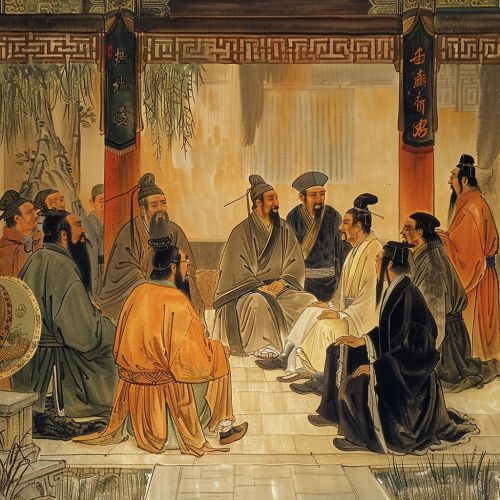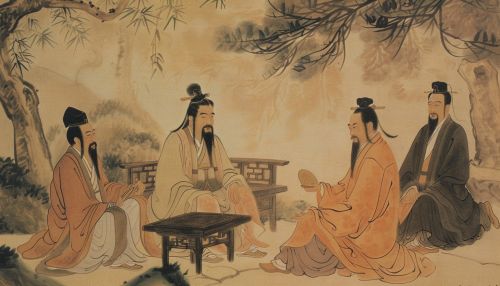Confucianism
Origins and Historical Development
Confucianism, also known as Ruism, is a system of thought and behavior originating in ancient China. Distinctly humanistic, the Confucian perspective is characterized by a focus on moral education, family loyalty, respect for authority, and the cultivation of personal character.
The origins of Confucianism can be traced back to the teachings of Confucius, a philosopher and statesman who lived from 551 to 479 BC. Confucius, known as Kong Fuzi in China, sought to create a social and political order grounded in ethical principles. His teachings were later compiled by his disciples in the Analects, a collection of sayings and ideas that form the basis of Confucian thought.


Confucianism developed during a period of social and political turmoil in China, known as the Spring and Autumn period. Confucius and his followers, known as the Ru, advocated for a return to older norms of conduct, particularly those related to social hierarchy and ritual propriety, or li.
After Confucius' death, his teachings were further developed and interpreted by a number of scholars, including Mencius and Xunzi. These interpretations, along with the original teachings of Confucius, form the core of what is now known as Classical Confucianism.
Key Concepts and Beliefs
Confucianism is not a religion in the traditional sense, but rather a system of social and ethical philosophy. It does not concern itself with metaphysical or theological questions, such as the existence of gods or the afterlife. Instead, it focuses on practical issues of morality and ethics, particularly as they relate to social relationships and personal development.
One of the key concepts in Confucianism is ren, often translated as "benevolence" or "humaneness". Ren is the virtue of compassion and empathy for others, and it is considered the highest of all Confucian virtues.
Another important concept is li, which refers to the rituals, customs, and norms that govern social behavior. Li is seen as a means of cultivating ren and maintaining social harmony.
Confucianism also places a great deal of emphasis on the concept of xiao, or "filial piety". This refers to the respect and loyalty that children are expected to show their parents and elders.
Influence and Legacy
Confucianism has had a profound influence on Chinese culture and society, shaping everything from social structures to educational practices. It has also spread to other parts of East Asia, including Japan, Korea, and Vietnam, where it has similarly influenced cultural norms and values.
In addition to its cultural influence, Confucianism has also had a significant impact on political thought and governance. The Confucian emphasis on moral character and social harmony has been used to justify various forms of government, from absolute monarchy to meritocracy.
In the modern era, Confucianism continues to be a significant force in East Asia. While it has been criticized for its perceived emphasis on hierarchy and conformity, it has also been praised for its focus on ethical conduct and social responsibility.
